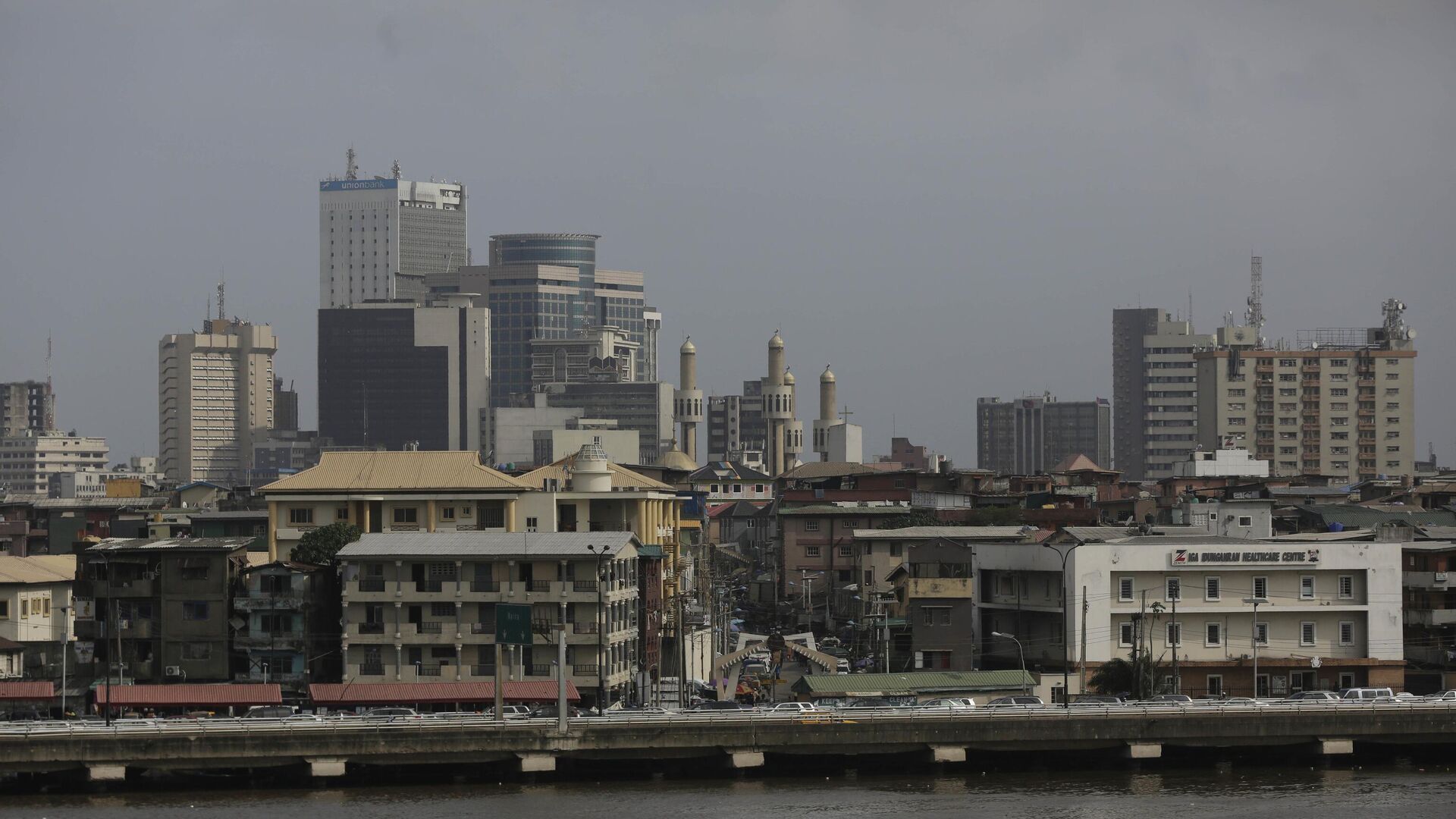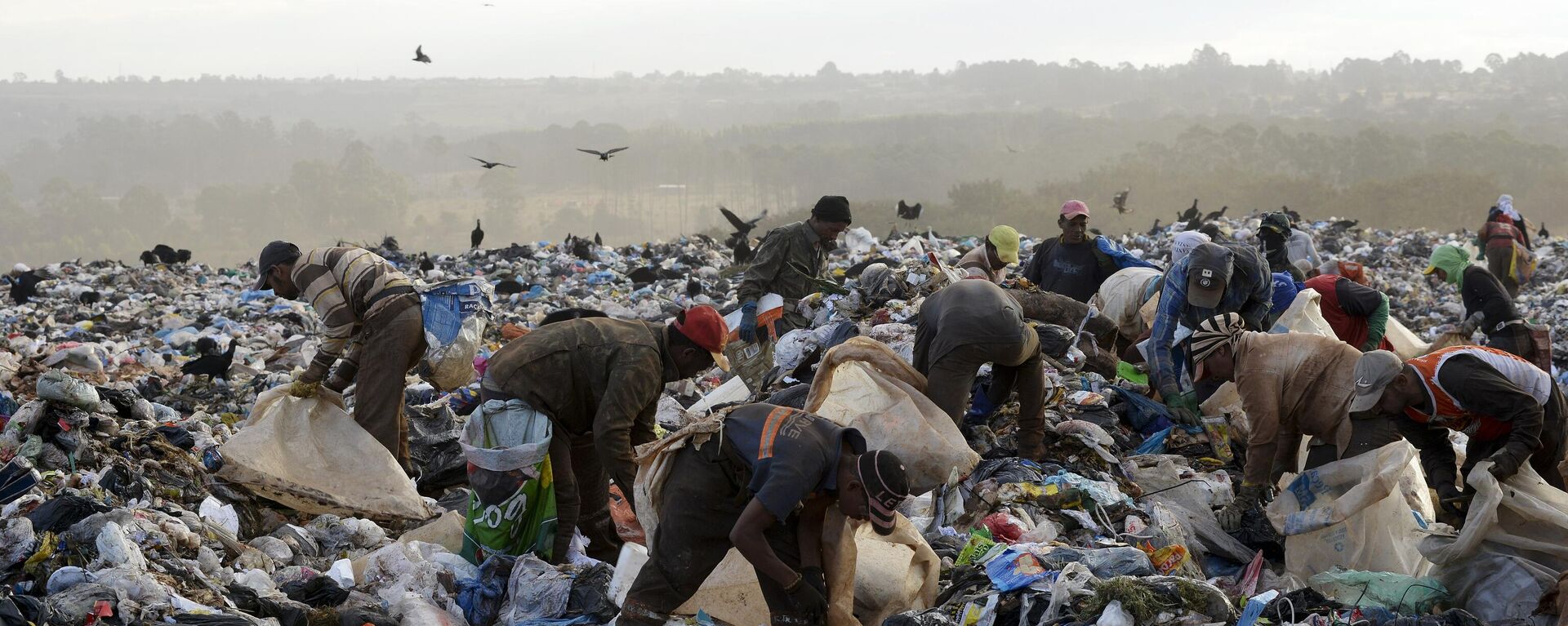https://en.sputniknews.africa/20240122/nigerias-lagos-state-introduces-single-use-plastic-ban-1064731705.html
Nigeria's Lagos State Introduces Single-Use Plastic Ban
Nigeria's Lagos State Introduces Single-Use Plastic Ban
Sputnik Africa
Lagos, being one of Africa's most densely populated cities, is taking this step to address its significant plastic waste problem; international experts... 22.01.2024, Sputnik Africa
2024-01-22T10:13+0100
2024-01-22T10:13+0100
2024-01-22T10:13+0100
sub-saharan africa
nigeria
lagos
west africa
law
ban
climate
climate change
environment
https://cdn1.img.sputniknews.africa/img/07e8/01/16/1064731804_0:32:3072:1760_1920x0_80_0_0_4acf896b5188c9d25d22cce497f1af0d.jpg
In an effort to curb the environmental and health hazards of plastic pollution, Lagos State in Nigeria has announced a ban on single-use plastics with immediate effect. The ban covers items such as plates, cups, cutlery, straws, bags, and bottles that are made of plastic and intended to be used only once.The state’s environment commissioner, Tokunbo Wahab, highlighted the severe pollution caused by non-biodegradable plastics, which are leading to blocked drains, flooding, marine litter and wildlife entanglement.The ban on single-use plastics is part of the state's efforts to promote a circular economy, where waste is minimized and resources are reused. The state also encourages the use of alternative materials, such as paper, bamboo, and biodegradable plastics, as well as the development of recycling and waste-to-energy initiatives.
https://en.sputniknews.africa/20231110/life-in-plastic-not-so-fantastic-activist-reveals-ways-to-reduce-plastic-waste-in-africa-1063455102.html
nigeria
lagos
west africa
Sputnik Africa
feedback@sputniknews.com
+74956456601
MIA „Rossiya Segodnya“
2024
Muhammad Nooh Osman
https://cdn1.img.sputniknews.africa/img/07e7/04/0a/1058467512_0:0:1280:1280_100x100_80_0_0_ec723833bcbfcaed2e21952965ad99e4.jpg
Muhammad Nooh Osman
https://cdn1.img.sputniknews.africa/img/07e7/04/0a/1058467512_0:0:1280:1280_100x100_80_0_0_ec723833bcbfcaed2e21952965ad99e4.jpg
News
en_EN
Sputnik Africa
feedback@sputniknews.com
+74956456601
MIA „Rossiya Segodnya“
Sputnik Africa
feedback@sputniknews.com
+74956456601
MIA „Rossiya Segodnya“
Muhammad Nooh Osman
https://cdn1.img.sputniknews.africa/img/07e7/04/0a/1058467512_0:0:1280:1280_100x100_80_0_0_ec723833bcbfcaed2e21952965ad99e4.jpg
nigeria, lagos, west africa, law, ban, climate, climate change, environment
nigeria, lagos, west africa, law, ban, climate, climate change, environment
Nigeria's Lagos State Introduces Single-Use Plastic Ban
Muhammad Nooh Osman
Writer/Editor
Lagos, being one of Africa's most densely populated cities, is taking this step to address its significant plastic waste problem; international experts estimate that Nigeria produces 2.5 million tonnes of plastic waste each year, of which only 9% is recycled.
In an effort to curb the environmental and health hazards of
plastic pollution, Lagos State in Nigeria has announced a ban on single-use plastics with immediate effect.
The ban covers items such as plates, cups, cutlery, straws, bags, and bottles that are made of plastic and intended to be used only once.
The state’s environment commissioner, Tokunbo Wahab, highlighted the severe pollution caused by non-biodegradable plastics, which are leading to blocked drains, flooding, marine litter and wildlife entanglement.
"Following the menace which single-use plastics, especially non-biodegradable styrofoam, are causing on the environment, the Lagos state government through the Ministry of the Environment and Water Resources is hereby announcing a ban on the usage and distribution of styrofoam and other single-use plastics in the state with immediate effect," Wahab said in a statement.
The ban on single-use plastics is part of the state's efforts to promote a circular economy, where waste is minimized and resources are reused.
The state also encourages the use of alternative materials, such as paper, bamboo, and biodegradable plastics, as well as the development of recycling and waste-to-energy initiatives.



